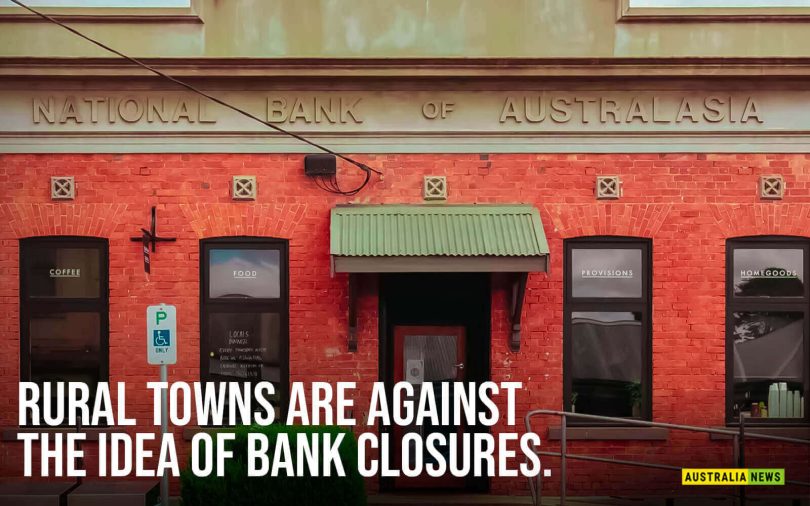The rural community in Junee, New South Wales, did not take the news lying down when the Commonwealth Bank prepared to close the town’s sole bank.
According to the CBA, fewer than 100 people visited the bank each week, and it was no longer profitable because more and more clients were shopping online, according to Junee Shire Council general manager James Davis.
The bank was operating with fewer hours for four weeks before the anticipated closure, so municipal personnel decided to count the number of customers there.
On Thursday, Mr. Davis testified before a Senate panel in Junee, that they documented up to 323 consumers per week, or around 26 per hour, or one every three minutes.
“As you’re aware, bank closures are having a disproportionate impact on rural Australia over our city and metropolitan counterparts,” he stated.
“The big four banks are meddling in a form of social engineering by forcing their loyal customers into banking practices they do not want or are unable to access.”
“The reality is that vulnerable and marginalised people in communities … aren’t able to use or will never own or access the internet or a mobile phone.”
A three-year ban on additional regional closures has been imposed by the Commonwealth Bank, which earlier this year postponed the closing of the Junee branch.
The bank was committed to having the biggest market share of branches in rural Australia, according to chief executive Matt Comyn, but the expense of maintaining them and disbursing cash was becoming unsustainable.
The investigation is investigating the impact of more than 600 regional closures that have occurred in Australia since 2017, primarily as a result of lockdowns related to COVID-19.
The vast majority of customers at all four major banks report utilizing online banking, which has led to a sharp reduction in cash transactions.
However, face-to-face banking has been cited by regional and rural Australian communities as a crucial service and a component of their social fabric.
Farmers require dependable local bank managers to handle their complex operations, and having access to money keeps neighborhood services, events, and sports teams operating.
Banks, according to Junee Mayor Neil Smith, are oblivious to the demands of rural Australians.
“Council runs parks and gardens, swimming pools, sports fields, and it does not make money; we choose to do so to make our place a better place to live,” Mr. Smith stated.
“So let’s turn the focus on a bit less economic rationalism and a little bit more on the people: We all know how much these banks make, let’s share the money around a little.”
After losing four banks in 15 years, NAB is planning to close a branch in the nearby town of Temora this month.
“It’s sad and frustrating that we’re working hard as a council and the community to build up our shire,” Mayor Rick Firman stated.
“Then you’ve got big banks saying, ‘Actually we don’t believe in you, your present, and your future’.”
- Published By Team Australia News





